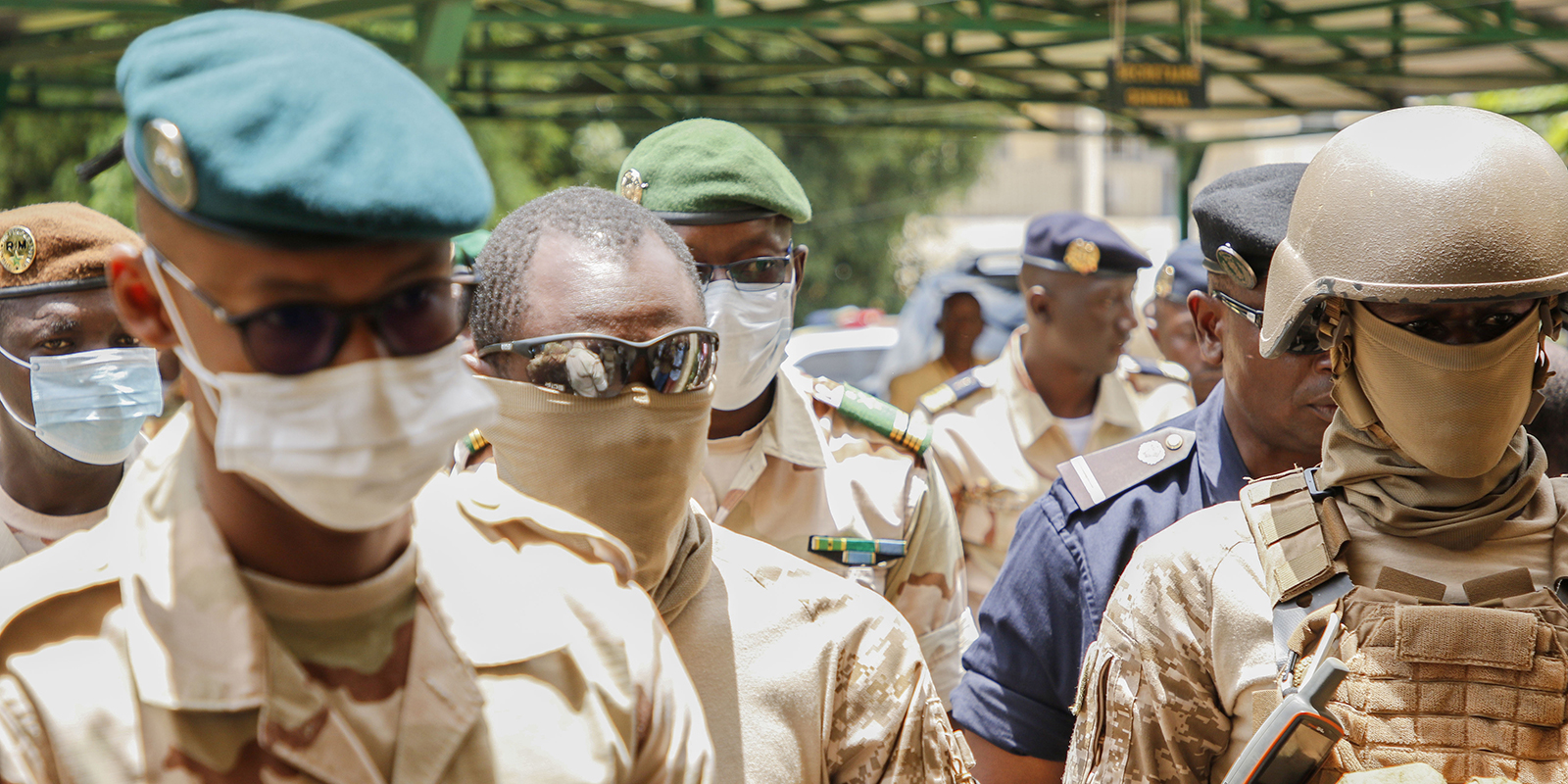Following the 5th September coup in Guinea, the African Union (AU) and the Economic Community of West African States (ECOWAS) issued condemnations of the action, followed by a suspension of Guinea from these organisations. The glaring problem being that the response of the AU and ECOWAS to the recent coups in Guinea and Mali can only be labelled as ‘template’ responses that fail to address the core issues that lead to these coups in the first place.
The alarming rate of coups on the continent are an indicator that firmer measures are required from the AU and respective regional bodies @OvigweEguegu
Tweet
Coups can result from opportunistic power grabs like we saw in Chad, and a combination of ambition and disgruntlement like in the case of Mali and Guinea. Whatever the motives, the AU has a role in preventing the conditions that justify unconstitutional transfer of power.
Just blame the military
The AU’s ‘Silence the Guns’ initiative and the ‘Africa we want’ are Pan-African political slogans that have not been internalised in key national institutions like the military. Coups are often motivated by local grievances (perceived or real) and are executed by military officers of national armies who are often acting with backing from a foreign power. Or, when they are not backed to execute the coup, they seek backing to get international legitimacy following the coup. Moreover, to military officers, AU mechanisms against juntas are more about the self-preservation of political leaders that set the rules than they are about promoting the spirit of democracy.
An aspect of the coups on the African continent that are routinely left out is the antecedents of the coup plotters, for example Col. Assimi Goita – leader of the Malian coup- received training with the United States (US), some of the members of the Mali junta also received training in Russia months before the coup. Likewise, Guinea’s Lt. Colonel Mamady Doumbouya is a former French foreign legionnaire prior to leading the Special Forces Group unit created by ex-President Conde. The Guinean soldiers were also under training with the US in Mauritania which Doumbouya praised as a ‘sharing experience’. Experts have also stated that these training programmes always create the same problems that the US government seeks to avoid, that is, highly trained, well-armed forces see and take the opportunity to impose their will on vulnerable governments for any number of reasons.
The need for greater deterrence
The alarming rate of coups on the continent are an indicator that firmer measures are required from the AU and respective regional bodies as a deterrent, and since ‘scolding’ governments is almost always ignored by coup plotters, different strategies are clearly needed.
Admittedly, the AU’s principle of non-intervention is an established part of international law and is parallel to Member State sovereignty and political independence, but this only increases the importance of accountability measures in the face of destabilising political events since suspension from the AU and regional blocs are not enough of a deterrent from coups.
When it comes to coups the role of misrule and bad governance cannot be overemphasised, and it is no accident that the recent coups occurred in some of the poorest countries on the continent @OvigweEguegu
Tweet
A more proactive AU
The lack of cohesion and coordination within the AU and among member states continues to undermine any possibility to address the governance issues plaguing some countries in Africa. The coups should be seen not just from a military perspective or foreign meddling. The role of misrule and bad governance cannot be overemphasised, and it is no accident that the recent coups occurred in some of the poorest countries on the continent.
Considering the lived realities of millions on the African continent, coups will likely continue to occur based on the simple fact that core conditions are seldom dealt with holistically. As such, the AU needs to do better in terms of preventing certain dynamics based on context. This will require paying closer attention to the political, economic and governance dynamics and issues within member states: particularly those with no history of democratic transfer of power.
As an example, President Barrow promised he would only serve one term, but his decision to seek re-election in December is already causing tensions and disgruntlement among some Gambian political actors and top military officials. President Barrow is so concerned that he has invited 600 Senegalese troops to Gambia ahead of the December election. Thus far, AU and ECOWAS have both been very silent on this matter which has the potential to create a political crisis in the Gambia as the country prepares for its elections.
While the context across countries are different, one thing is clear: the combined strength of the political institutions and rule of law within these countries, and AU sanctions are not strong enough to deter military officers from ambitious power grabs. Without stronger action to prevent coups, the AU will continue to struggle to deliver the Africa it says it wants.
Ovigwe Eguegu, is a Policy Analyst at Development Reimagined based in Abuja, Nigeria. He tweets at @OvigweEguegu.


